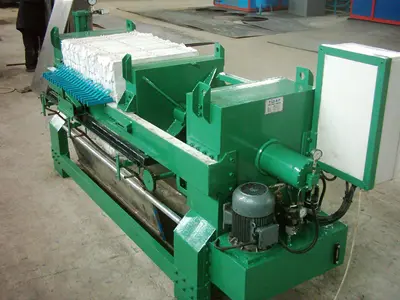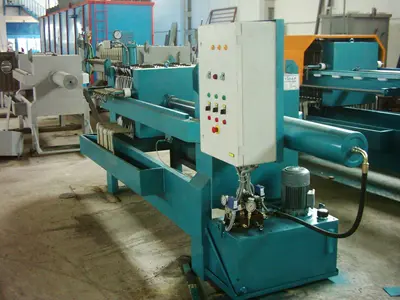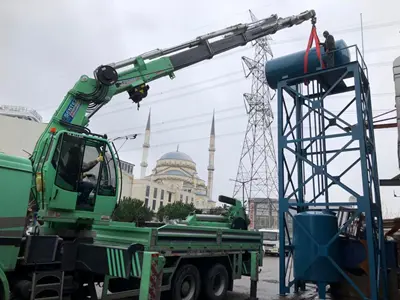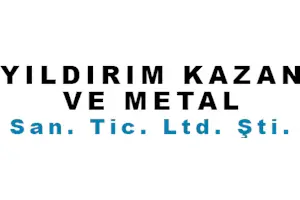M-AG001 kategorisinde ürün bulunamadı.
Benzer kategorideki diğer ilanlar listelenmektedir.What is a waste oil recycling facility?
Waste Oil Recycling Facility is a facility specially designed for the collection, processing, and recycling of used oils. These facilities ensure that used oils are properly disposed of without harming the environment and also recycle waste oils for reuse.
Waste oils can be obtained from various sources such as household kitchens, industrial plants, restaurants, and other commercial establishments. These oils should be managed properly as they can potentially cause serious environmental issues. Discharging waste oils into sewers or other waste storage areas can harm the environment and human health.
What are waste oil recycling facilities and what do they do?
Waste oil recycling facilities are facilities where used oils collected from industrial plants, restaurants, and households are processed. These facilities contribute to the preservation of natural resources by minimizing the environmental impact of waste oils. At the same time, by recycling waste oils, they create economic value. When waste oils are disposed of improperly, they can cause serious harm to the environment and water sources. Therefore, waste oil recycling facilities ensure environmental sustainability by processing these wastes safely and effectively. Additionally, products obtained from recycling waste oils can be converted into renewable energy sources such as biodiesel, leading to energy savings.
Waste oil recycling facilities prepare waste oils for reuse by processing them. This process usually includes steps such as refining, purifying, and proper storage of waste oils. The products obtained from the recycling process may include biodiesel, soap, oil-based solid fats, and other industrial raw materials.
These facilities enhance environmental sustainability by minimizing the harm of waste oils to the environment and water sources, while also ensuring more efficient use of resources. Waste oil recycling facilities play an important role in waste management, providing a significant solution for the proper disposal and recycling of waste oils.
What types of waste oils do waste oil recycling facilities process?
Waste oil recycling facilities can process various types of waste oils from industrial plants, restaurants, and households. These waste oils typically include frying oil, motor oil, hydraulic oil, and industrial oil, among other types. Waste oil recycling facility can process waste oils. Facilities usually collect these waste oils, subject them to preprocessing, and make them reusable using suitable processing methods. This process may involve steps such as separating, filtering, and refining the waste oils. As a result, waste oils can be transformed into various products such as biodiesel, soap, detergent, and industrial oils.
Waste oil recovery facilities
Manufacturers with production experience in waste oil recovery facilities can reach a wide audience and introduce themselves to potential customers by contacting platforms such as makinaturkiye.com. Waste oil recovery facilities are specially designed facilities for the collection, processing, and recycling of used oils. These facilities enhance environmental sustainability by minimizing the harm of waste oils to the environment and contribute to economic benefits by recovering a valuable resource. Platforms such as makinaturkiye.com offer manufacturers the opportunity to showcase their products and connect with potential customers. Manufacturers promote themselves to a wider audience through activities on platforms like these.
How does a waste oil recycling facility work?
The operation process of waste oil recycling facilities generally consists of four stages: collection, preprocessing, main processing, and storage. When asked, how does a waste oil recycling facility work, collection, preprocessing, main processing, and storage. In the first stage, waste oils are collected from various sources and brought to the facility. Then, the collected oils are sent to a preprocessing facility. Here, large particles and solids are separated, and necessary preprocessing is done to improve the quality of the oil. The preprocessed oils are then directed to the main processing facility. At this stage, the oils are refined, purified, and transformed into the desired final product. Finally, processed oils are stored appropriately or made available for sale. Throughout this process, all necessary safety measures for the environment and human health are taken, and local regulations are followed.
Cost of waste oil recycling facility
The cost of a waste oil recycling facility can vary depending on a number of factors. Here are some of these factors:
Capacity of the Facility: The daily or annual processing capacity of the facility has a significant impact on the cost. Larger capacity facilities generally come with higher costs.
Technological Features of the Facility: The variety and effectiveness of technologies used in waste oil recycling determine a crucial factor in the cost of the facility. More innovative and efficient technologies typically have higher costs.
Processing Process: The processing process used in waste oil recycling also affects the cost. Some processes may require more energy, labor, or chemicals, which can increase costs.
Location of the Facility: The region where the facility is located can affect the cost due to local factors such as labor, energy, and material costs. For example, energy costs for a facility can vary depending on the region's energy prices.
Construction and Infrastructure Costs: The construction and infrastructure costs of the facility can vary depending on the size, complexity, and local construction costs.
-
Licenses and Regulations: Licenses and regulations necessary for operating waste oil recycling facilities can affect costs. Costs may increase due to stricter environmental standards or permit requirements in some areas.
-
Operational and Maintenance Costs: The costs of personnel, materials, and equipment necessary for operating and maintaining the facility are part of the costs.
The combination of these factors should be considered when determining the cost of a waste oil recycling facility. As each facility will have different requirements and conditions, costs will vary based on these characteristics. You can learn more about the price of waste oil recycling facility cost from the profile information of manufacturers on our more detailed website.








